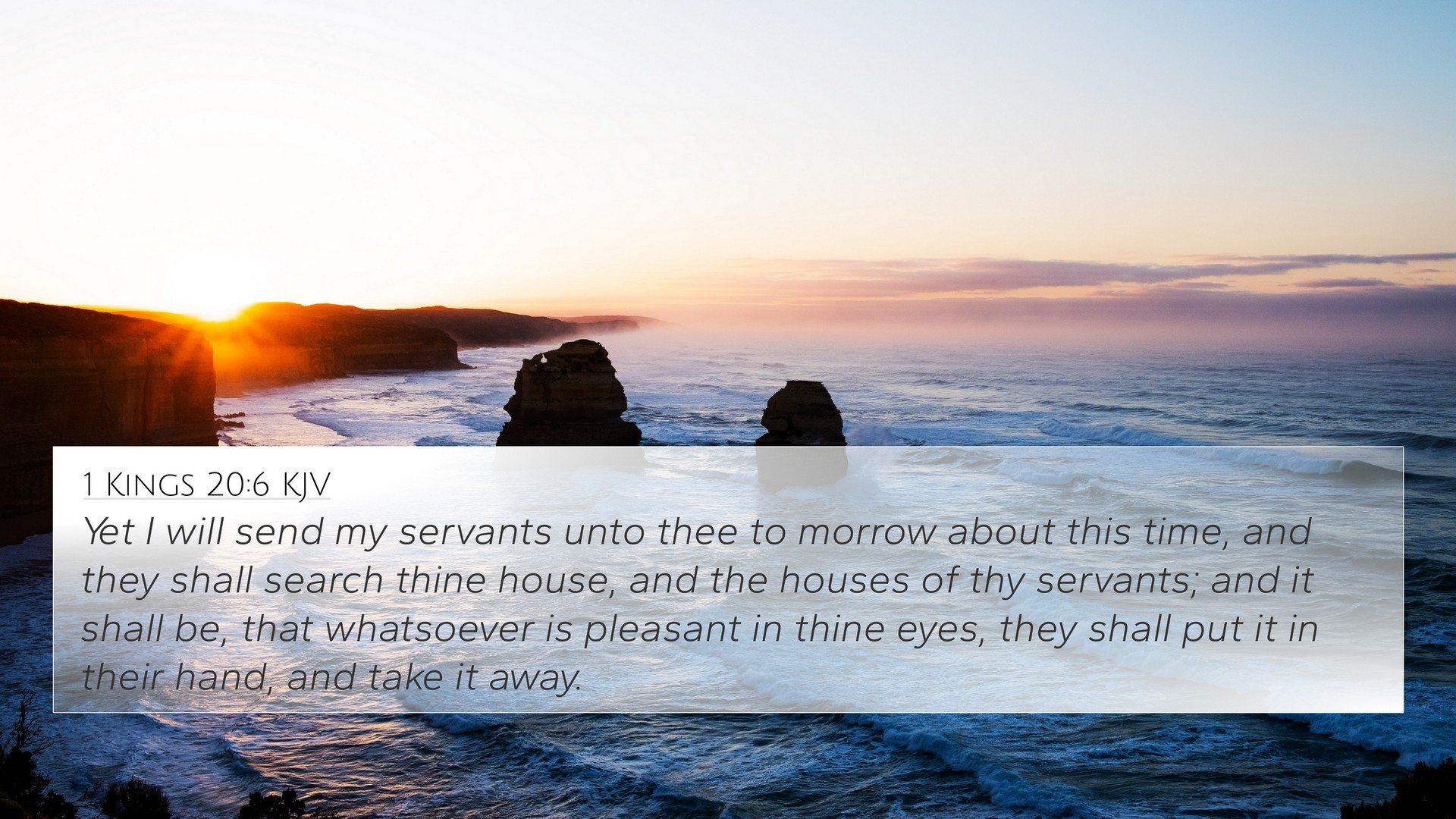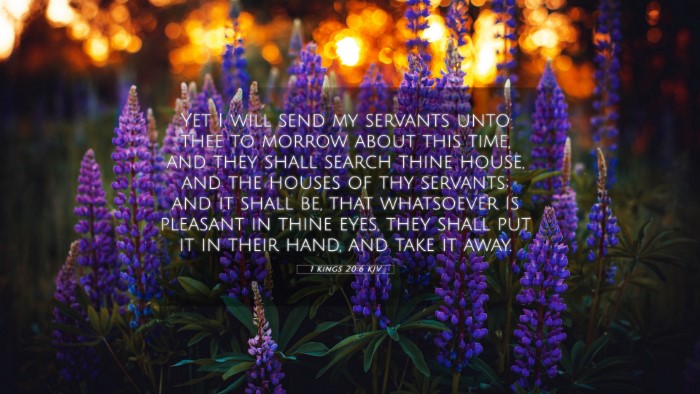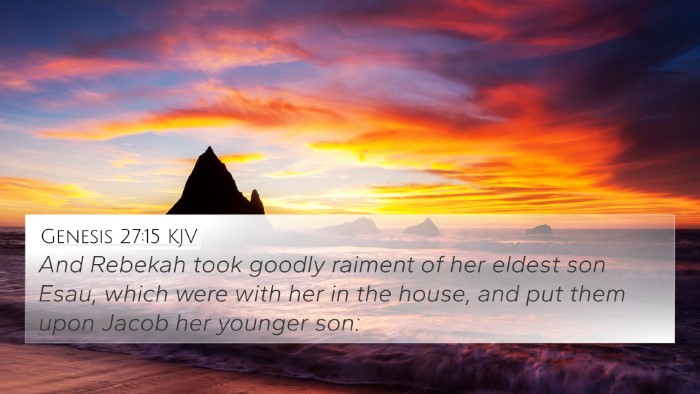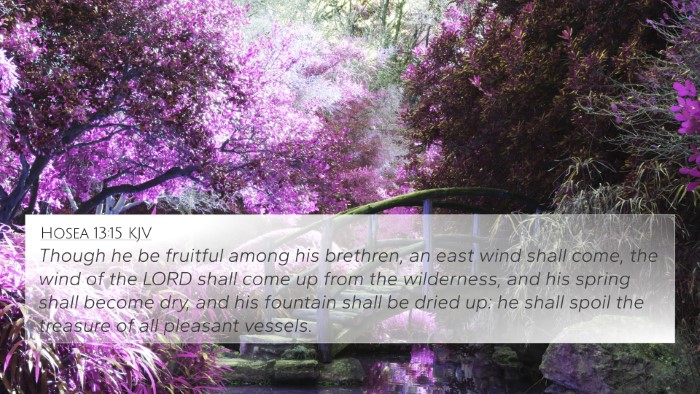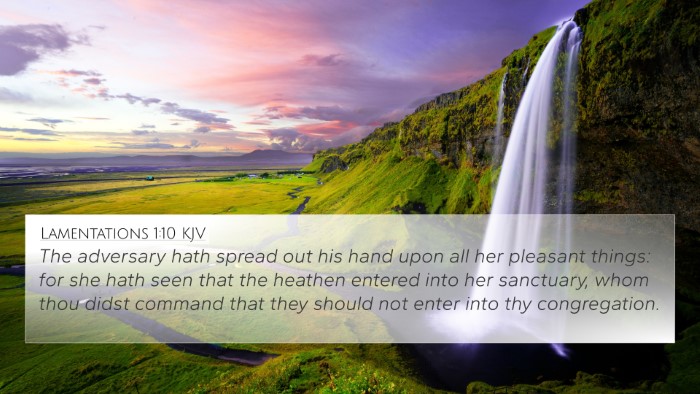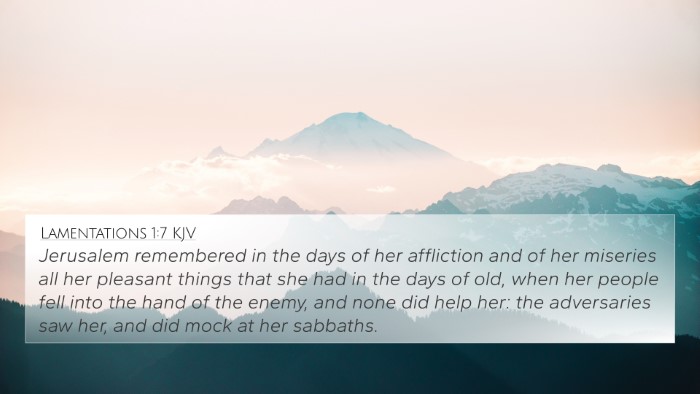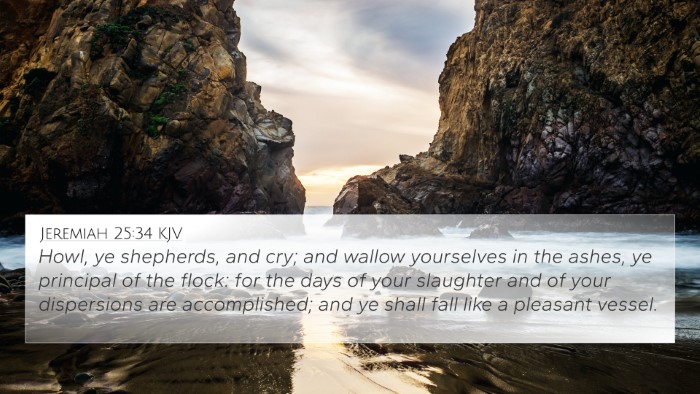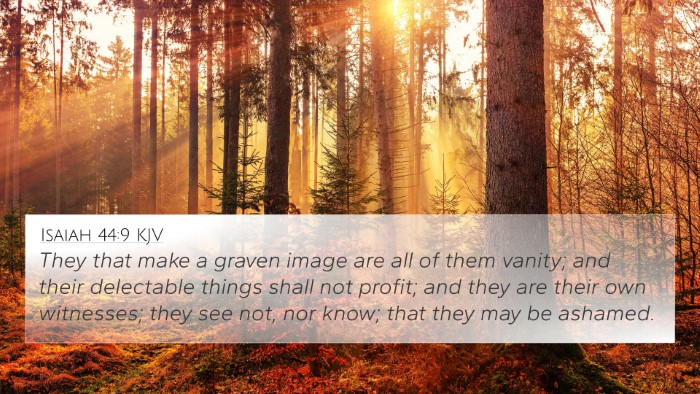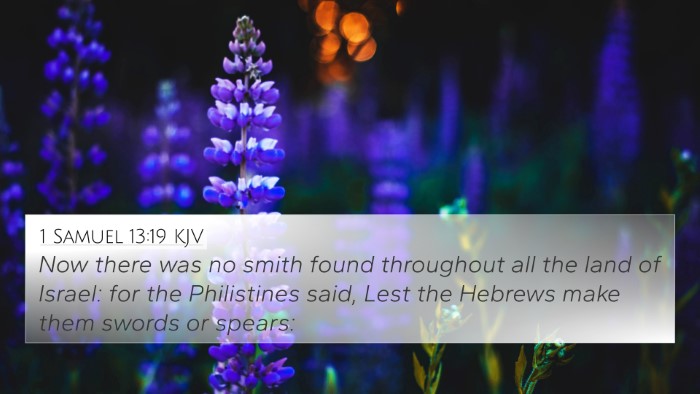Understanding 1 Kings 20:6
Verse: 1 Kings 20:6 - "Yet I will send my servants unto thee tomorrow about this time, and they shall search thy house, and the houses of thy servants; and it shall be, that whatsoever is pleasant in thine eyes, they shall put it in their hand, and take it away."
Commentary Summary
Contextual Background: This verse occurs in the narrative of the conflict between Israel and Benhadad, king of Syria. Previously, the Syrian king had threatened to take possessions from Ahab, the king of Israel. In this moment, he is sending messengers to execute his threats, imposing a sense of urgency and tension in the story.
- Matthew Henry: Henry emphasizes that Benhadad’s demands were audacious and ungrateful, as Israel had previously helped him. The insistence on taking anything desirable from Ahab's possessions demonstrates the seriousness of the threat. Henry also points out the arrogance of Benhadad’s assertion of power over Ahab.
- Albert Barnes: Barnes interprets this action as a clear demonstration of Benhadad's intent to assert dominance, viewing Ahab’s situation as precarious. He posits that this verse exemplifies how political pressures compel nations to respond to threats. Ahab's reaction to such an ultimatum would be crucial in the unfolding events.
- Adam Clarke: Clarke reflects on the implications of Benhadad's command, commenting on the depths of humiliation that Ahab was expected to endure. Clarke also connects this to Ahab's character, suggesting that Ahab's leadership was fraught with vulnerability, and this situation forced him into a corner, testing his resolve and faith.
Insights on the Theme of Power and Conflict
This verse serves as a strong reminder of the tensions that exist in the world, particularly in leadership and power dynamics. Reflecting on the verse reveals deeper themes of trust, reliance on God in times of trial, and the dangers of prideful ambition.
Cross-References and Thematic Connections
Key Bible cross-references related to 1 Kings 20:6 provide valuable insights into understanding the narrative's broader spiritual and historical implications:
- 1 Kings 18:17-18: This passage highlights Ahab's prior conflicts with the prophet Elijah and his lack of spiritual integrity.
- 1 Kings 19:2: Reflects on the threats against Elijah’s life, illuminating Ahab's tumultuous rule and the hostile environment prompted by Baal worship.
- 2 Chronicles 18:1: Explores Ahab's alliances through marriage to the house of Jezebel and their repercussions on Israel’s faithfulness to God.
- Isaiah 36:13-20: A parallel situation of intimidation by Assyrian representatives against Jerusalem, showing similar power dynamics.
- Psalm 37:12-13: Highlights God’s perspective on the wicked plotting against the righteous, offering a thematic contrast to Ahab’s predicament.
- Proverbs 16:18: "Pride goes before destruction," reflecting on Ahab’s arrogance that led to dire outcomes for Israel.
- James 4:6: "God opposes the proud but gives grace to the humble," contrasting the characters of Ahab and those who trust in God’s provision.
The Role of Cross-Referencing in Biblical Study
In-depth study and connection of verses such as 1 Kings 20:6 with others helps illuminate the richness of Scripture. Tools for bible cross-referencing, such as concordances, can assist readers in identifying these complex interrelationships:
- Identifying connections between Old and New Testament.
- Exploring detailed cross-references between Gospels for added context.
- Understanding themes through cross-referencing Psalms with New Testament teachings.
Conclusion
1 Kings 20:6 serves not just as a historical account but unfolds spiritual lessons in humility, faith, and the dangers of pride. By utilizing tools for cross-referencing and exploring thematic connections, one can draw broader applications and insights for personal study or sermon preparation.
